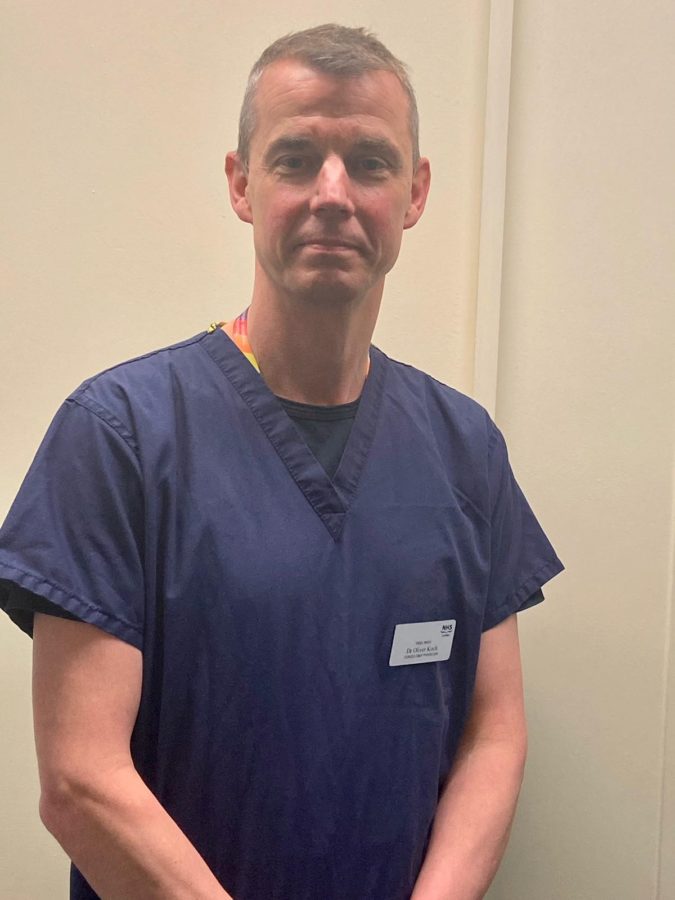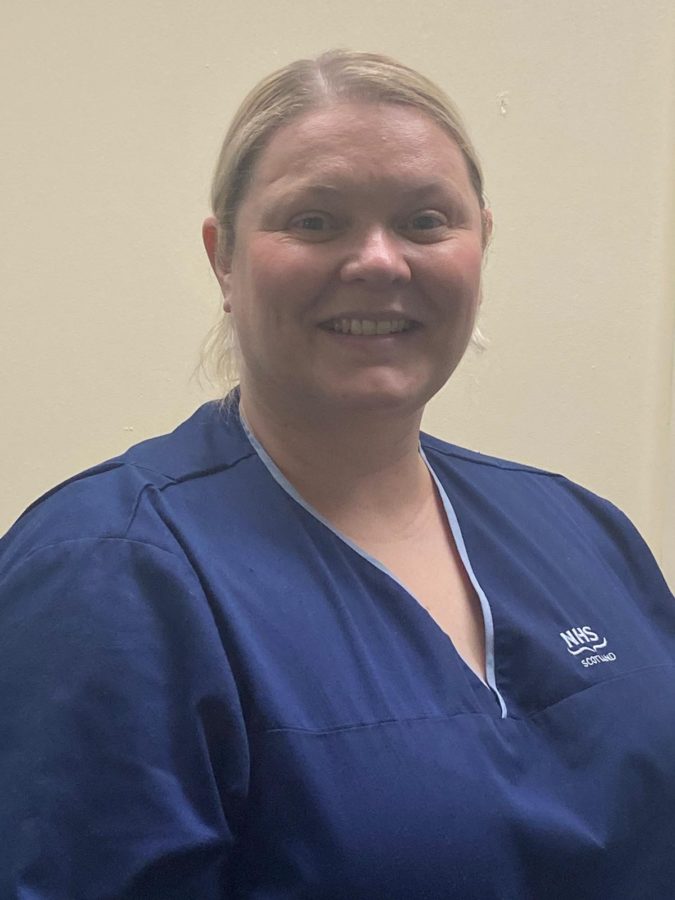Coronavirus – looking back one year on
Experts in dealing with infectious diseases at the Western General Hospital in Edinburgh who treated the first Covid-19 patient in Scotland have been looking back over the past year. The clinicians explained that they were certain that “life as we knew it would change” in the instant they received the emergency call, exactly one year ago.
The Regional Infectious Diseases Unit (RIDU) at the Western General became the first to care for a patient who had tested positive for the virus on 1 March 2020. The patient, who was very unwell, had to be transferred to NHS Lothian from another health board for the specialist care provided by RIDU.
Those teams, who have been working on the frontlines ever since, said the moment they received a phone call to tell them that the specialist ambulance was on its way has been forever etched in their memories.
Dr Oliver Koch, Consultant in Infectious Diseases, NHS Lothian, said: “When I took the call, I was at a social gathering and it seemed unbelievable because I was surrounded by so many people at the time. I remember looking around me and I knew in that instant that life as we knew it would change.
“Of course we had prepared and rehearsed for the moment and we were well versed in what to do, which obviously made it easier, but I don’t think everyone was prepared for the change to everyday life or the impact that it would really have.
“Adrenalin and adapting current practices got us through those early days and months of the pandemic.”
In the very first months of the crisis Dr Koch and Dr Claire Mackintosh, Clinical Director of RIDU, and Michelle Wiseman, Senior Charge Nurse, took the lead on Lothian’s frontline providing expertise, advice and care.
Michelle added: “We weren’t frightened because we had put so much effort into being prepared and because everything was moving so fast. I was maybe anxious and that was a feeling throughout the team, but there was a huge sense of loyalty to each other and we just pulled together.”
The infectious diseases team created one of the first drive-through testing facilities at the Western General Hospital and an outreach community COVID-19 testing service which went on to provide a template for the current vaccination and testing facilities.
The drastic changes to everyday lives, caused by the virus, have also sparked some real innovation in the ways that care is delivered across Lothian.
An outpatient antibiotic service delivering intravenous therapy in patients home was created by the infectious diseases team to prevent patients travelling to hospital.
The infectious diseases team, alongside Edinburgh Access GP Practice, Waverley Care and Cyrenians third sector organisations and Edinburgh health and social care partners, also helped set up an intermediate care unit for homeless patients or at risk of homelessness to provide safe discharge from hospital and allow the patients space and time to recover.
Dr Mackintosh said: “After spending six weeks or so, by that time, implementing community testing and setting up the drive-through testing site, we understood that this was no longer just an issue for infectious diseases units and that very rapidly it would affect every member of staff in the NHS and indeed every single person in the country in some way. It was a difficult time and we spent time in conversation with the rest of hospital services planning for managing a surge of cases.
“We felt we were prepared because we specialise in infectious diseases and have experience in managing transmissible diseases. Nonetheless the number of very unwell patients we have faced, the sadness and grief over so many lives lost and the concern for NHS capacity has been emotionally draining and much harder than we could have predicted.”
Since March last year, clinical care has been transformed as new research and development has provided a better understanding of the virus and in turn more effective treatments.
Dr Koch said: “There have been a lot of advances, a number of new treatments have emerged. The NHS has demonstrated amazing adaptability. And despite everything, we have continued to deliver compassionate care in very difficult circumstances.
“There are good reasons to be optimistic. I don’t think we will ever eradicate Covid-19, but it will become more manageable, especially as more people are vaccinated, we are beginning to see the end in sight.”


